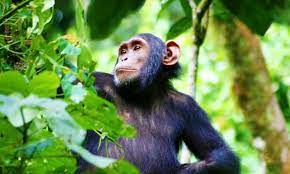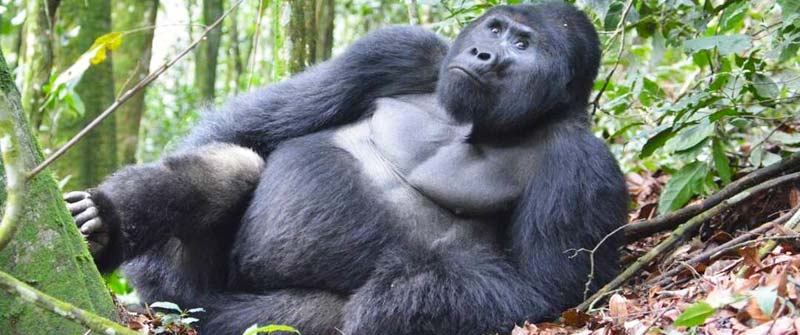Kibale Forest Safari Uganda
Kibale National Park.
Kibale Forest Safari Uganda could easily be called the primate capital of the world. It is a home to a host of wildlife although mostly famous for it 13 species of primates including chimpanzees. Kibale national Park lies close to the tranquil Ndali-Kasenda crater area and is a half a day’s drive from Queen Elizabeth National Park, Rwenzori mountains, and Semiliki National Park and the Toro-Semiliki national Reserve
Wildlife
Chimpanzees might be the main attraction in the park but there are twelve other types of primates that have been recorded in this
park. Some of these include: the black and white colobus, red-tailed monkey, blue monkeys, grey-cheeked mangabey, red-tailed monkey, olive baboon, bush baby and potto.Although rarely seen there are other mammals living in the park these include; forest elephant, buffalo, leopard, bush pig, and duiker. You could also catch sight of reptiles and amphibians and a colourful array of butterflies.
Kibale National Park has an impressive number of bird species. It has a record of about 325 bird species some of which are; the black-capped apalis, blue-headed sunbird, collared apalis, purple- breasted sunbird and many others.
Game viewing time
Game viewing is good all year round in Kibale National Park, however its best in the dry seasons of November to February, and June to September. Chimpanzee trekking is best during these months.
Although some of the trails are very difficult to traverse during the rainy season, the park is open all year round and you can still track chimpanzees. You can also view other wild animals although they are harder to see because of the thick vegetation.
What to do in Kibale national park
There are quite a number of fun activities to do in Kibale National park. There are forest hikes usually restricted to the dry season, there is a cultural heritage and nature trail- a 2-6 day trail through the forest and you can of course go chimpanzee trekking. You can also visit the Bigodi Wetland sanctuary and the Sebitoli Forest camp. There are children’s activities such as pond dipping, photography and batik making. So people who travel with their children do not have to worry about the children getting bored while the adults go of tracking chimpanzees.
The chimpanzee habituation experience gives you an opportunity to accompany Kibale’s researchers and habituators as they follow chimpanzees throughout their daily activities. This has been proven to get the chimpanzees used to human presence without interrupting their daily activities. Visitors get the chance to follow a chimpnazee’s day from about 6am in the morning till 7pm in the evening. Tracking chimpanzees in Kibale is definitely an experience all on its own and one of the best things to do on you safari tour in Uganda.




